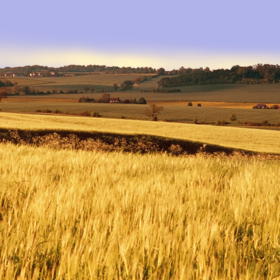
Radiant Earth Spot the Crop XL Challenge
Meet the winners of the Radiant Earth Spot the Crop Challenges
This competition is organised into two parallel tracks. For this track participants are asked to only use time-series of both Sentinel-2 (multi-spectral) and Sentinel-1 (synthetic aperture radar) data as input to their model. For the other track, see Radiant Earth Spot the Crop Challenge.
The agricultural sector makes a substantial contribution to GDP and livelihoods across the developing world. However, regular and reliable agricultural data remains difficult and expensive to collect on the ground. As a result, policy-makers usually don’t have access to updated data for implementing policies or supporting farmers.
Earth observation satellites provide a wealth of multispectral image data that can be used for developing agricultural monitoring tools. These tools support farmers and policy-makers across Africa and the developing world.
The objective of this challenge is to use time-series of Sentinel-1 and Sentinel-2 multi-spectral data to classify crops in the Western Cape of South Africa. Your challenge is to build a machine learning model to predict crop type classes for the test dataset. The training dataset is generated by the Radiant Earth Foundation team, using the ground reference data collected and provided by the Western Cape Department of Agriculture.
The competition and data preparation are made possible with support by the convening sponsor, GIZ FAIR Forward, which is implemented by Deutsche Gesellschaft für Internationale Zusammenarbeit (GIZ) GmbH on behalf of the German Ministry for Economic Cooperation and Development (BMZ).
To be eligible for cash prizes, winners will release their top solutions under an open source license for ongoing use and learning. The winners’ solutions will be shared in a well-organized code repository with proper documentation, and added to the Radiant MLHub model repository.
About Radiant Earth Foundation (radiant.earth)
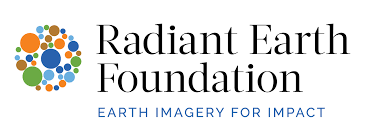
Radiant Earth Foundation is a nonprofit corporation working to empower organizations and individuals with open machine learning (ML) and Earth observation data, standards, and tools to address the world’s most critical international development challenges. Radiant Earth fosters collaboration through a cloud-based open geospatial training data library, Radiant MLHub. Radiant also supports an ecosystem of practitioners to develop standards, expand interoperability around ML on Earth observation, and provide information and training to help advance the capacity of those working in the global development sector using ML and Earth observation. Visit Radiant Earth on Twitter, LinkedIn, Medium, and GitHub.
About GIZ FAIR Forward (toolkit-digitalisierung.de/en/fair-forward)

The “FAIR Forward - Artificial Intelligence for all” initiative promotes a more open, inclusive and sustainable approach to AI on an international level. It is implemented by the Deutsche Gesellschaft für Internationale Zusammenarbeit (GIZ) on behalf of the German Federal Ministry for Economic Cooperation and Development (BMZ). Fair Forward seeks to improve the conditions for local AI innovation and policy in five partner countries: Rwanda, Uganda, Ghana, South Africa and India. Together with our partners, we focus on three areas of action: (1) strengthen local technical know-how on AI, (2) increase access to open AI training data, (3) develop policy frameworks ready for AI.
About Western Cape Department of Agriculture (elsenburg.com)

The Western Cape Department of Agriculture provides a wide range of development, research and support services to the agricultural community in the Western Cape. The Western Cape province of South Africa is the country’s leading producer of high value agricultural export crops and derived products (mainly fruit & wine), as well as being the “breadbasket” of South Africa in terms of dryland winter wheat production. The Western Cape Department of Agriculture initiated a detailed crop survey in 2013 to establish a field-scale, land use data set, initially in response to growing data requirements emanating from developmental pressures and regional planning initiatives. The process was repeated during 2017/18. For more information, visit the department website.
About CV4GC (cv4gc.org)

The Computer Vision for Global Challenges is an initiative to bring the computer vision community closer to socially impactful tasks, datasets and applications for worldwide impact.
About Descartes Labs (descarteslabs.com)
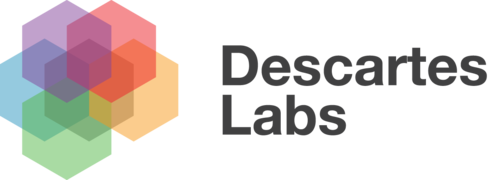
Established in 2014 by a team of scientists from Los Alamos National Laboratory, Descartes Labs was founded on the belief that planetary knowledge has the power to radically alter how companies, governments, and nonprofits understand their relationship to the world's physical systems. Scientific integrity, innovation, and a commitment to sustainability define Descartes Labs’ core values. It’s talented team possesses decades of experience working on some of the United States’ most difficult problems, with expertise in large-scale computing, artificial intelligence, and satellite imagery.
Teams and collaboration
You may participate in competitions as an individual or in a team of up to four people. When creating a team, the team must have a total submission count less than or equal to the maximum allowable submissions as of the formation date. A team will be allowed the maximum number of submissions for the competition, minus the total number of submissions among team members at team formation. Prizes are transferred only to the individual players or to the team leader.
Multiple accounts per user are not permitted, and neither is collaboration or membership across multiple teams. Individuals and their submissions originating from multiple accounts will be immediately disqualified from the platform.
Code must not be shared privately outside of a team. Any code that is shared, must be made available to all competition participants through the platform. (i.e. on the discussion boards).
The Zindi user who sets up a team is the default Team Leader. The Team Leader can invite other data scientists to their team. Invited data scientists can accept or reject invitations. Until a second data scientist accepts an invitation to join a team, the data scientist who initiated a team remains an individual on the leaderboard. No additional members may be added to teams within the final 5 days of the competition or the last hour of a hackathon, unless otherwise stated in the competition rules
A team can be disbanded if it has not yet made a submission. Once a submission is made individual members cannot leave the team.
All members in the team receive points associated with their ranking in the competition and there is no split or division of the points between team members.
Datasets and packages
The solution must use publicly-available, open-source packages only. You may use only the datasets provided for this competition. Automated machine learning tools such as automl are not permitted.
If the challenge is a computer vision challenge, image metadata (Image size, aspect ratio, pixel count, etc) may not be used in your submission.
You may use pretrained models as long as they are openly available to everyone.
The data used in this competition is the sole property of Zindi and the competition host. You may not transmit, duplicate, publish, redistribute or otherwise provide or make available any competition data to any party not participating in the Competition (this includes uploading the data to any public site such as Kaggle or GitHub). You may upload, store and work with the data on any cloud platform such as Google Colab, AWS or similar, as long as 1) the data remains private and 2) doing so does not contravene Zindi’s rules of use.
You must notify Zindi immediately upon learning of any unauthorised transmission of or unauthorised access to the competition data, and work with Zindi to rectify any unauthorised transmission or access.
Your solution must not infringe the rights of any third party and you must be legally entitled to assign ownership of all rights of copyright in and to the winning solution code to Zindi.
Submissions and winning
You may make a maximum of 10 submissions per day.
You may make a maximum of 300 submissions for this competition.
Before the end of the competition you need to choose 2 submissions to be judged on for the private leaderboard. If you do not make a selection, your 2 best public leaderboard submissions will be used to score on the private leaderboard.
Zindi maintains a public leaderboard and a private leaderboard for each competition. The Public Leaderboard includes approximately 50% of the test dataset. While the competition is open, the Public Leaderboard will rank the submitted solutions by the accuracy score they achieve. Upon close of the competition, the Private Leaderboard, which covers the other 50% of the test dataset, will be made public and will constitute the final ranking for the competition.
Note that to count, your submission must first pass processing. If your submission fails during the processing step, it will not be counted and not receive a score; nor will it count against your daily submission limit. If you encounter problems with your submission file, your best course of action is to ask for advice on the Competition’s discussion forum.
If you are in the top 20 at the time the leaderboard closes, we will email you to request your code. On receipt of email, you will have 48 hours to respond and submit your code following the submission guidelines detailed below. Failure to respond will result in disqualification.
To be eligible for cash prizes, 1st, 2nd, or 3rd on the final leaderboard will release their top solutions under an open source license for ongoing use and learning. The winners’ solutions will be shared in a well-organized code repository with proper documentation, and added to the Radiant MLHub model repository.
Cash prizes awarded to top winners are made possible through additional support from platinum sponsor Computer Vision for Global Challenges (CV4GC) and gold sponsor Descartes Labs.
If two solutions earn identical scores on the leaderboard, the tiebreaker will be the date and time in which the submission was made (the earlier solution will win).
If the error metric requires probabilities to be submitted, do not set thresholds (or round your probabilities) to improve your place on the leaderboard. In order to ensure that the client receives the best solution Zindi will need the raw probabilities. This will allow the clients to set thresholds to their own needs.
The winners will be paid via bank transfer, PayPal, or other international money transfer platform. International transfer fees will be deducted from the total prize amount, unless the prize money is under $500, in which case the international transfer fees will be covered by Zindi. In all cases, the winners are responsible for any other fees applied by their own bank or other institution for receiving the prize money. All taxes imposed on prizes are the sole responsibility of the winners. The top 3 winners or team leaders will be required to present Zindi with proof of identification, proof of residence and a letter from your bank confirming your banking details.
Payment will be made after code review and an introductory call with the host.
You acknowledge and agree that Zindi may, without any obligation to do so, remove or disqualify an individual, team, or account if Zindi believes that such individual, team, or account is in violation of these rules. Entry into this competition constitutes your acceptance of these official competition rules.
Zindi is committed to providing solutions of value to our clients and partners. To this end, we reserve the right to disqualify your submission on the grounds of usability or value. This includes but is not limited to the use of data leaks or any other practices that we deem to compromise the inherent value of your solution.
Zindi also reserves the right to disqualify you and/or your submissions from any competition if we believe that you violated the rules or violated the spirit of the competition or the platform in any other way. The disqualifications are irrespective of your position on the leaderboard and completely at the discretion of Zindi.
Please refer to the FAQs and Terms of Use for additional rules that may apply to this competition. We reserve the right to update these rules at any time.
Reproducibility of submitted code
- If your submitted code does not reproduce your score on the leaderboard, we reserve the right to adjust your rank to the score generated by the code you submitted.
- If your code does not run you will be dropped from the top 10. Please make sure your code runs before submitting your solution.
- Always set the seed. Rerunning your model should always place you at the same position on the leaderboard. When running your solution, if randomness shifts you down the leaderboard we reserve the right to adjust your rank to the closest score that your submission reproduces.
- We expect full documentation. This includes:
Requirements for code:
- All packages and versions used (please do not add packages you do not use)
- Specify the environment to run your code in.
- All scripts/notebooks and their outputs. If you use a notebook that has been shared on the discussion board please add it to the list of notebooks you submit and the output from the notebook. Remember to reference the source.
- All editing of data must be done in a script or notebook (i.e. not manually in Excel)
Documentation
A PDF, word document or README is required
It should cover
- How to set up folders and where each file is saved
- Order in which to run code
- Explanations of features used
- Environment code to be run. (e.g. Google Colab or the specifications of your local machine)
- Expected run time for each notebook. This will be useful to the review team for time and resource allocation.
Your code needs to run properly, code reviewers do not have time to debug code. If code does not run easily you will be bumped down the leaderboard.
Data standards:
- Your submitted code must run on the original train, test, and other datasets provided.
- If external data is allowed, external data must be freely and publicly available, including pre-trained models with standard libraries. If external data is allowed, any data used should be shared with Zindi to be approved and then shared on the discussion forum. Zindi will also make note of the external data available on the data page.
- Packages:
- You must submit a requirements file with all packages and versions used.
- If a requirements file is not provided, solutions will be run on the most recent packages available.
- Custom packages in your submission notebook will not be accepted.
- You may only use tools available to everyone i.e. no paid services or free trials that require a credit card.
Consequences of breaking any rules of the competition or submission guidelines:
- First offence: No prizes for 6 months and 2000 points will be removed from your profile (probation period). If you are caught cheating, all individuals involved in cheating will be disqualified from the challenge(s) you were caught in and you will be disqualified from winning any competitions for the next six months and 2000 points will be removed from your profile. If you have less than 2000 points to your profile your points will be set to 0.
- Second offence: Banned from the platform. If you are caught for a second time your Zindi account will be disabled and you will be disqualified from winning any competitions or Zindi points using any other account.
- Teams with individuals who are caught cheating will not be eligible to win prizes or points in the competition in which the cheating occurred, regardless of the individuals’ knowledge of or participation in the offence.
- Teams with individuals who have previously committed an offence will not be eligible for any prizes for any competitions during the 6-month probation period.
Monitoring of submissions
- We will review the top 20 solutions of every competition when the competition ends.
- We reserve the right to request code from any user at any time during a challenge. You will have 24 hours to submit your code following the rules for code review (see above). Zindi reserves the right not to explain our reasons for requesting code. If you do not submit your code within 24 hours you will be disqualified from winning any competitions or Zindi points for the next six months. If you fall under suspicion again and your code is requested and you fail to submit your code within 24 hours, your Zindi account will be disabled and you will be disqualified from winning any competitions or Zindi points with any other account.
The evaluation metric for this challenge is Cross Entropy with binary outcome for each crop:

In which:
- j indicates the field number (j=1 to N)
- N indicates total number of fields in the dataset (87,347 in the train and 35,389 in the test)
- i indicates the crop type (i=1 to 9)
- y_j,i is the binary (0, 1) indicator for crop type i in field j (each field has only one correct crop type)
- p_j,i is the predicted probability (between 0 and 1) for crop type i in field j
Your submission should include FieldIDs of the fields in the test dataset and the corresponding probability for each crop type. Each row should add up to 1. Your submission file should look like:
Field_ID Lucerne/Medics Planted pastures Fallow ... 1184 0.14 0.14 0.14 ...
Radiant Earth and Zindi would like to introduce you to four Data Sherpas. They will be your mentors and guides for the Radiant Earth Spot the Crop Challenges.
A Sherpa is a Tibetan person who lives on the Himalaya Mountains. They are guides to hikers and help them through the treacherous stretches. Our Data Sherpas will be your guides through these competitions. You can reach out to them privately through Zindi Inbox or on the discussion forum. NB: They will not respond to you outside of Zindi.
If someone reaches out to a Sherpa and receives help, the Sherpa will post a summary of the conversation, along with any advice and code shared, on the discussion board (your name will remain confidential). This is to encourage everyone, from new satellite imagery users to the pros, to engage with the Sherpas at each level.
Radiant Earth and Zindi will host a webinar with the Sherpas on Thursday 22 July, 17:00 GMT. Please bring your questions.
Username: NC_Fouotsa
Name: Noe Careme Fouotsa Manfouo
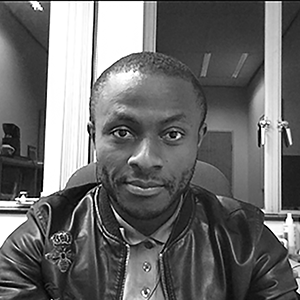
Noe is passionate about Data Science and Machine Learning for social good. He holds a PhD in Operations Research from Stellenbosch University in South Africa, where he graduated in December 2020. Noe’s dissertation was focused on the application of various machine learning and embedded feature selection techniques to forecast water supply and water demand. He is currently a postdoctoral researcher at the same institution, where he leads a project on applying machine learning on remotely sensed data for binary and multi-crop classification using Google Earth Engine. In the near future, Noe sees himself as a contributor to using data sciences and machine learning to help monitor agricultural activities at minimum costs in smallholder farms.
Username: microprocessors
Name: Gedeon Muhawenayo
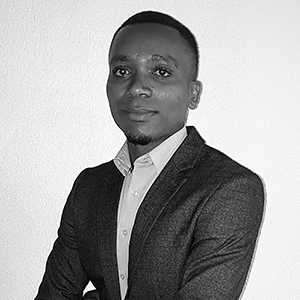
Gedeon is a machine learning research engineer with an interest in Geospatial image data processing. He has a masters degree in Machine Intelligence issued by the African Institute for Mathematical Science in Rwanda, funded and taught by Google AI and Facebook AI. Gedeon has participated in different data challenge competitions on both Kaggle and Zindi. His team won the UmojaHack Ghana competition on Zindi and 3rd place in the Cassava Leaf Classification competition on Kaggle. He is currently a Machine Learning Specialist at Rwanda Space Agency, where they apply state-of-the-art AI algorithms on remotely sensed data.
Username: edgar
Name: Edgar Ssensalo
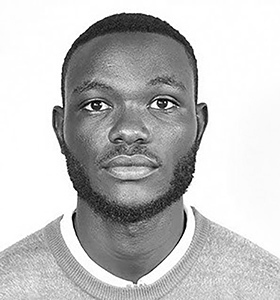
Edgar Ssensalo is a technology enthusiast, passionate about solving real-world challenges using technology. Currently, he works as an Artificial Intelligence Engineer at Sodzo Foundation in Uganda, where he builds and deploys custom machine learning models for object detection. He has built applications leveraging AI/ML across different platforms that are providing solutions to pressing challenges in areas such as climate change and personal health care.
Username: benessilfie
Name: Benjamin Essilfie-Nyame
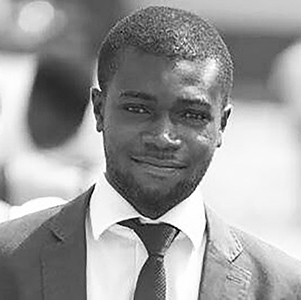
Benjamin holds a BSc. in Electrical and Electronic Engineering from the University of Mines and Technology in Ghana. He likes to research and apply machine learning models in diverse fields. Benjamin is currently working on applications related to Computer Vision and Electric Power Grid with a focus on probabilistic models and deep neural networks (deep learning). His portfolio can be found at https://be-nyame.github.io/profile/.
CV4GC 1st Place Prize: $4,000 USD
2nd Place Prize: $2,800 USD
3rd Place Prize: $2,000 USD
You can only win prize money in one of the Radiant Earth Spot the Crop challenges. Winners in Radiant Earth Spot the Crop XL Challenge will be awarded first.
Competition closes on 3 October 2021.
Final submissions must be received by 11:59 PM GMT.
We reserve the right to update the contest timeline if necessary.
Join the largest network for
data scientists and AI builders